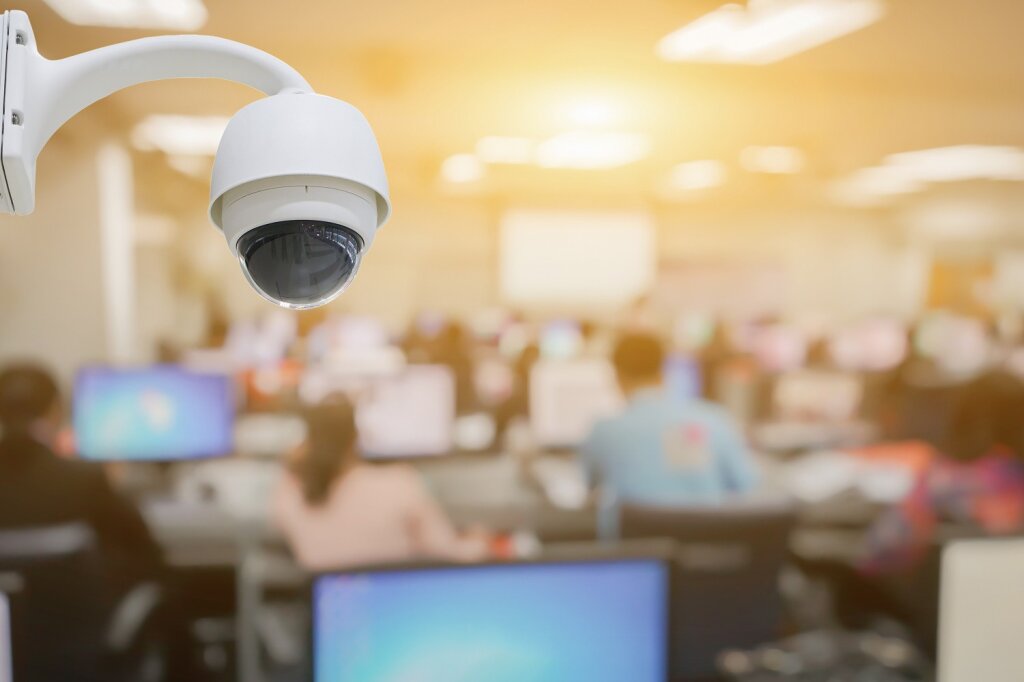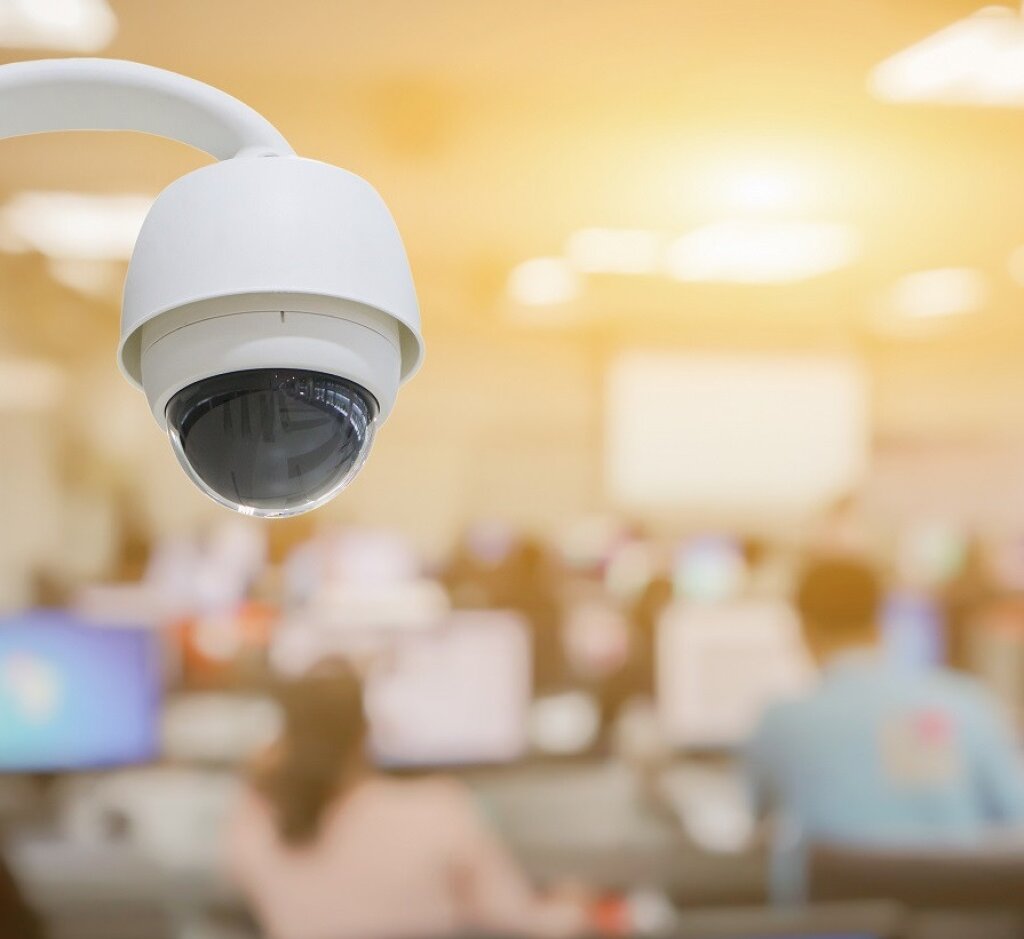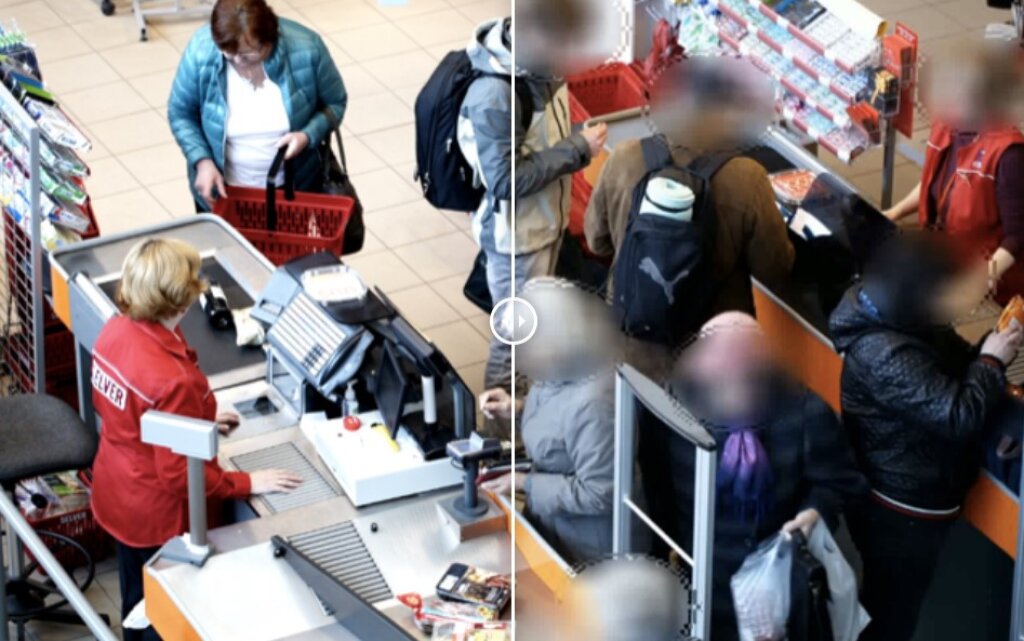Benefits of CCTV for businesses
Learn about the benefits that CCTV affords businesses, from traditional security benefits to extended safety, performance and production benefits.
Closed-circuit television (CCTV)
CCTV has been deployed by businesses for about 40 years.
While the main reason that businesses install CCTV systems is to bolster security, they can also provide a range of other benefits, including health and safety alerts, production optimisation, and real-world training material
Typical CCTV business benefits: Security
Typical security-related CCTV business benefits include:
Deterring theft
Deterring vandalism
Availability of video evidence
Business premises monitoring
Insurance claim support
Insurance premium reduction
Providing peace of mind
Extended CCTV business benefits: Performance
In recent years, businesses have discovered extended non-security benefits of CCTV, such as:
Monitoring staff performance
Monitoring production performance
Monitoring staff safety
Developing training materials
Monitoring staff is subject to regulations and has to be implemented with care to avoid breaking privacy laws.
CCTV helps companies to improve the safety of staff, especially the well-being of staff who work alone or who work in remote locations.
Using CCTV footage to develop real-world training materials is a relatively new concept. Like staff monitoring, care must be taken not to breach people’s privacy rights. However, law enforcement, the NHS and healthcare organisations benefit from being able to train staff by showing real-world events in training programmes.

How CCTV systems can help
CCTV systems offer various benefits for businesses across many different industries. Here are some of the key advantages:
Crime deterrence
Deterrence is the main benefit of CCTV. The presence of cameras can discourage theft, vandalism and other criminal activities both inside and outside business premises.The College of Policing, for example, found that the most effective CCTV schemes were in parking facilities, which experienced a 51% decrease in crime when CCTV was in operation.
Enhanced security
CCTV systems provide continuous monitoring of premises, which enables businesses to identify and respond promptly to security threats.
Threats can include unauthorised access, suspicious behaviour and potential security breaches.Employee safety
CCTV cameras can contribute to the safety of employees by monitoring workplace activities and environments.In hazardous areas or situations, cameras can help to ensure adherence to safety protocols and provide evidence following accidents or other types of incidents.
CCTV is particularly useful to monitor staff who work alone (lone worker vulnerability) or who work remotely and may be far away from assistance or medical facilities.
CCTV can detect ‘man down’ incidents (slip and fall) and enable businesses to respond quickly and appropriately.
Loss reduction
By deterring theft and vandalism, CCTV systems can help businesses to minimise losses associated with inventory shrinkage, property damage, or fraudulent claims.
Retail theft has risen to unprecedented levels and CCTV can achieve significant cost savings in the long run.Evidence collection
In the event of a theft, security breach, accident or dispute, CCTV footage serves as valuable evidence for investigations and legal proceedings.Video evidence can help authorities to identify criminals, clarify events, and support decision-making processes.
Improved productivity
It is important to note that employee surveillance must be carried out in full compliance with privacy laws such as GDPR.However, CCTV can provide valuable analytical data to improve business processes such as production and manufacturing efficiency, sales engagement, and customer flow.
When used compliantly and transparently, CCTV cameras can also promote a sense of accountability among employees and encourage adherence to company policies and procedures.
Remote monitoring
Many modern CCTV systems offer remote access capabilities, which enables businesses or security personnel to monitor premises from anywhere that has an internet connection.Compared with the week-in week-out costs of security guards or 24/7 manned security, CCTV monitoring can help to reduce costs without impacting safety and security.
Remote monitoring also facilitates proactive responses to security issues.
Insurance benefits
Some insurance providers offer reduced premiums for businesses that install CCTV systems.
The presence of cameras statistically lowers the risk of incidents and provides insurers with greater confidence in the security measures implemented by the business.Customer confidence
Visible CCTV cameras can instil confidence in customers and visitors, as cameras assure them that the business takes security seriously.
Attention to security can contribute to a positive reputation and foster trust in a brand.Regulatory compliance
In certain industries, regulatory bodies may require businesses to maintain CCTV surveillance as part of compliance standards.Implementing a CCTV system helps to ensure adherence to legal requirements and industry regulations.
Business benefits of CCTV: Summary
Overall, CCTV systems play a crucial role in safeguarding businesses, assets, and personnel, and have important extended capabilities to facilitate efficient operations.
CCTV compliance
To extract maximum value from CCTV use in your business, be sure to operate cameras compliantly. Notably, when sharing video with a third party - for example when fulfilling a subject access request – all but the subject must be redacted (blurred, masked) in order to avoid privacy regulation breaches.
In other words, in the UK and Europe, GDPR is essential.
Where is GDPR applicable and what are the fines?
The General Data Protection Regulation (GDPR) is a comprehensive data protection law that applies to the processing of personal data within the European Union (EU) and the European Economic Area (EEA). It also has extraterritorial reach, meaning it can apply to organisations outside the EU/EEA if they process personal data of individuals who are in the EU/EEA.
UK GDPR is substantially the same as EU GDPR.
Applicability of GDPR
Within the EU/EEA
GDPR applies to all organisations that are established within the EU/EEA and process personal data of individuals within the EU/EEA, regardless of where the data processing actually takes place.
Outside the EU/EEA
GDPR applies to organisations outside the EU/EEA if they process personal data of individuals in the EU/EEA in connection with:
Offering goods or services to individuals in the EU/EEA (even if no payment is required).
Monitoring the behaviour of individuals within the EU/EEA (e.g., tracking online activity).
Fines under GDPR
GDPR enforcement includes significant fines for non-compliance, structured in two tiers based on the severity of the violation:
Lower Tier: Up to €10 million or 2% of global annual turnover (whichever is higher):
This tier applies to violations such as failure to:
Maintain proper records.
Conduct impact assessments.
Notify the supervisory authority of data breaches.
Higher Tier: Up to €20 million or 4% of global annual turnover (whichever is higher):
This tier applies to more serious violations, including:
Infringing on the basic principles of processing personal data (e.g., not having valid consent).
Violating data subjects' rights (e.g., not complying with access or erasure requests).
Unauthorised international data transfers.
GDPR fines are designed to be proportionate to the violation and can be influenced by factors such as the nature, gravity and duration of the infringement, the intent behind the violation and any steps taken to mitigate the damage.
Read how Facit helps businesses to automate CCTV video redaction for assured GDPR compliance.
Frequently asked questions about CCTV systems for businesses
I'm worried that I don't understand the laws around using CCTV at a place of business. What should I know?
Answer
It's crucial to comply with data protection laws, such as the GDPR in the EU, when using CCTV at a place of business. This includes informing individuals that they are being recorded, using signage and ensuring that the footage is stored securely and only accessible by authorised personnel. You must also have a valid reason for recording (e.g., security) and should not retain footage longer than necessary.
If I already have an alarm system, why would I need CCTV?
Answer
While an alarm system can alert you to a security breach, CCTV provides visual evidence of incidents, which can be invaluable for identifying and prosecuting offenders. CCTV also acts as a deterrent to potential criminals, who are less likely to target a business if they know they are being recorded
There are so many types of CCTV systems; I don't know which to choose. How do I decide?
Answer
The best CCTV system for your business depends on your specific needs. Consider factors like the size of your premises, the areas you need to cover, the level of detail you require in the footage, and whether you need features like night vision, remote access, or motion detection.
Do I need to notify my employees and customers that I'm using CCTV?
Answer
Yes, you are required to inform both employees and customers that CCTV is in operation. This is typically done through clear signage.
Can I use CCTV footage as evidence in court?
Answer
Yes, CCTV footage is often used as evidence in legal proceedings. For it to be admissible, the footage must be redacted to meet privacy compliance regulations.
What should I consider when installing CCTV to avoid infringing on privacy rights?
Answer
When installing CCTV, it's important to balance security needs with privacy rights. Avoid placing cameras in areas where people have a reasonable expectation of privacy and focus on areas where security risks are higher.
Is remote access to CCTV footage secure?
Answer
Remote access to CCTV footage can be secure if proper measures are taken. Ensure that your system uses strong encryption, secure login credentials, and has regular software updates.
Related articles
GDPR and CCTV in the Workplace: A Complete Guide
Please use the form below to ask any questions you may have about CCTV use in business, its benefits, challenges and compliant use.



